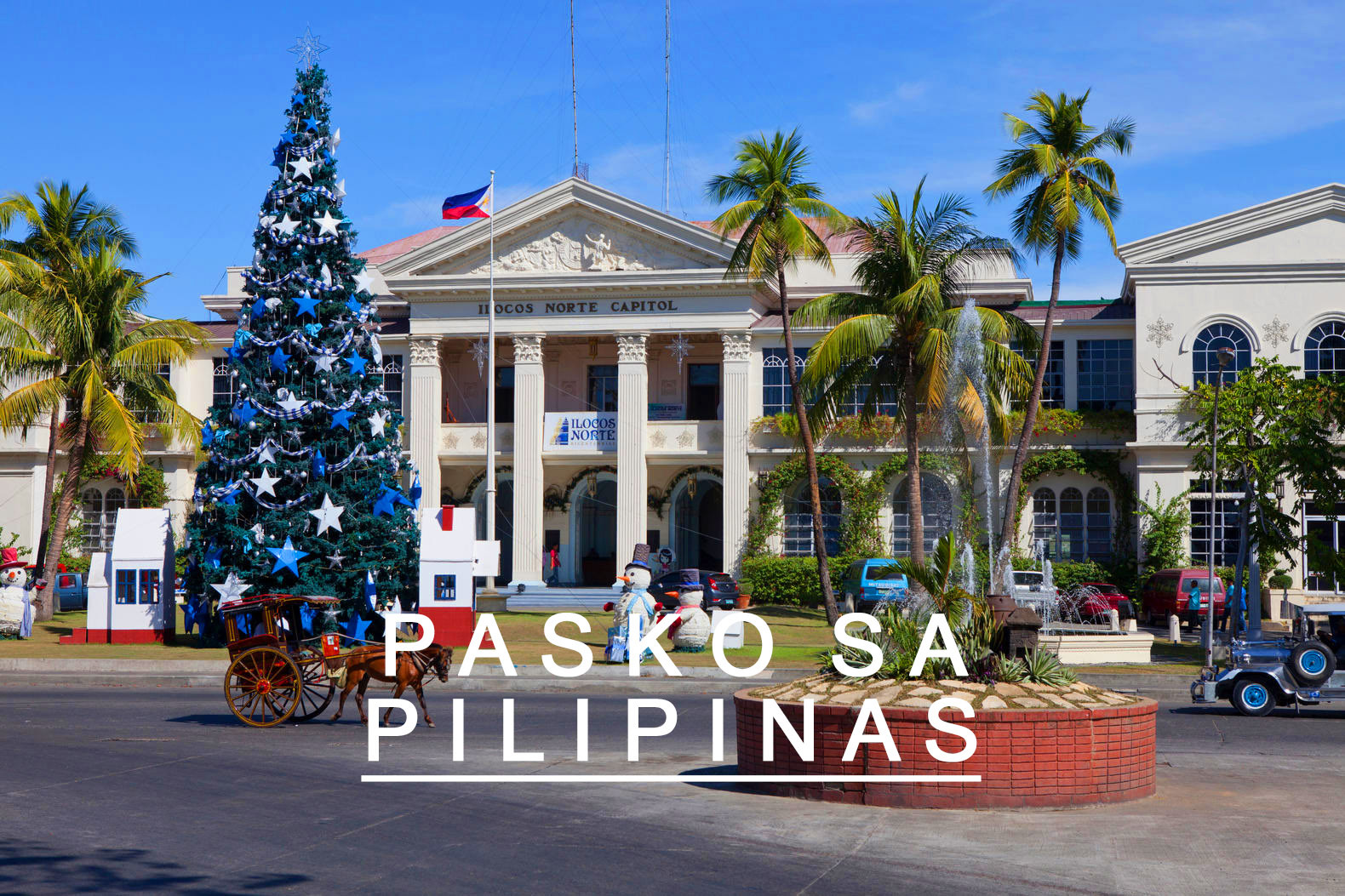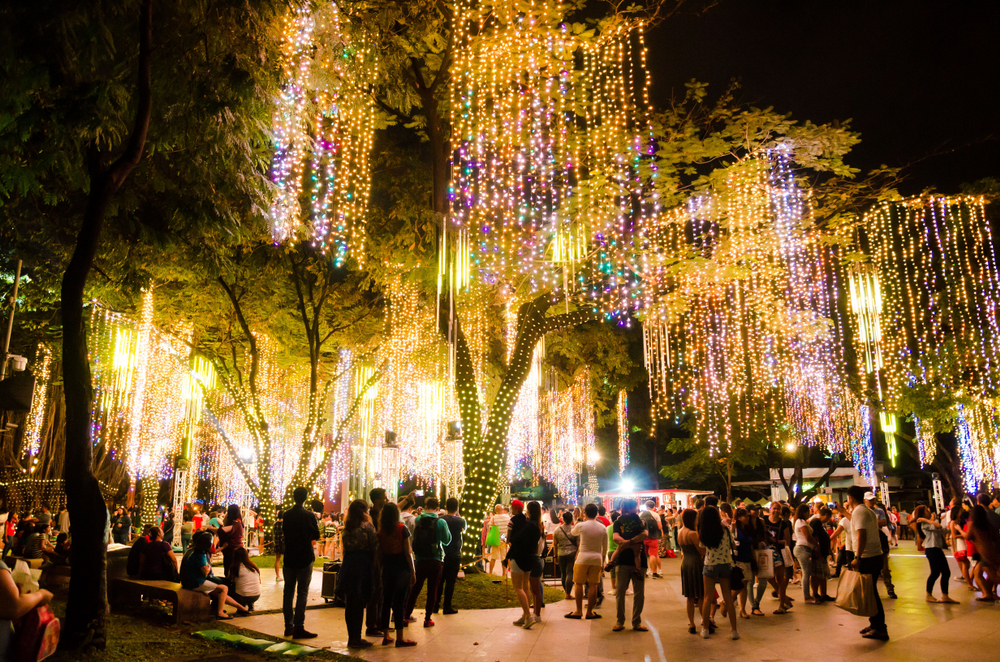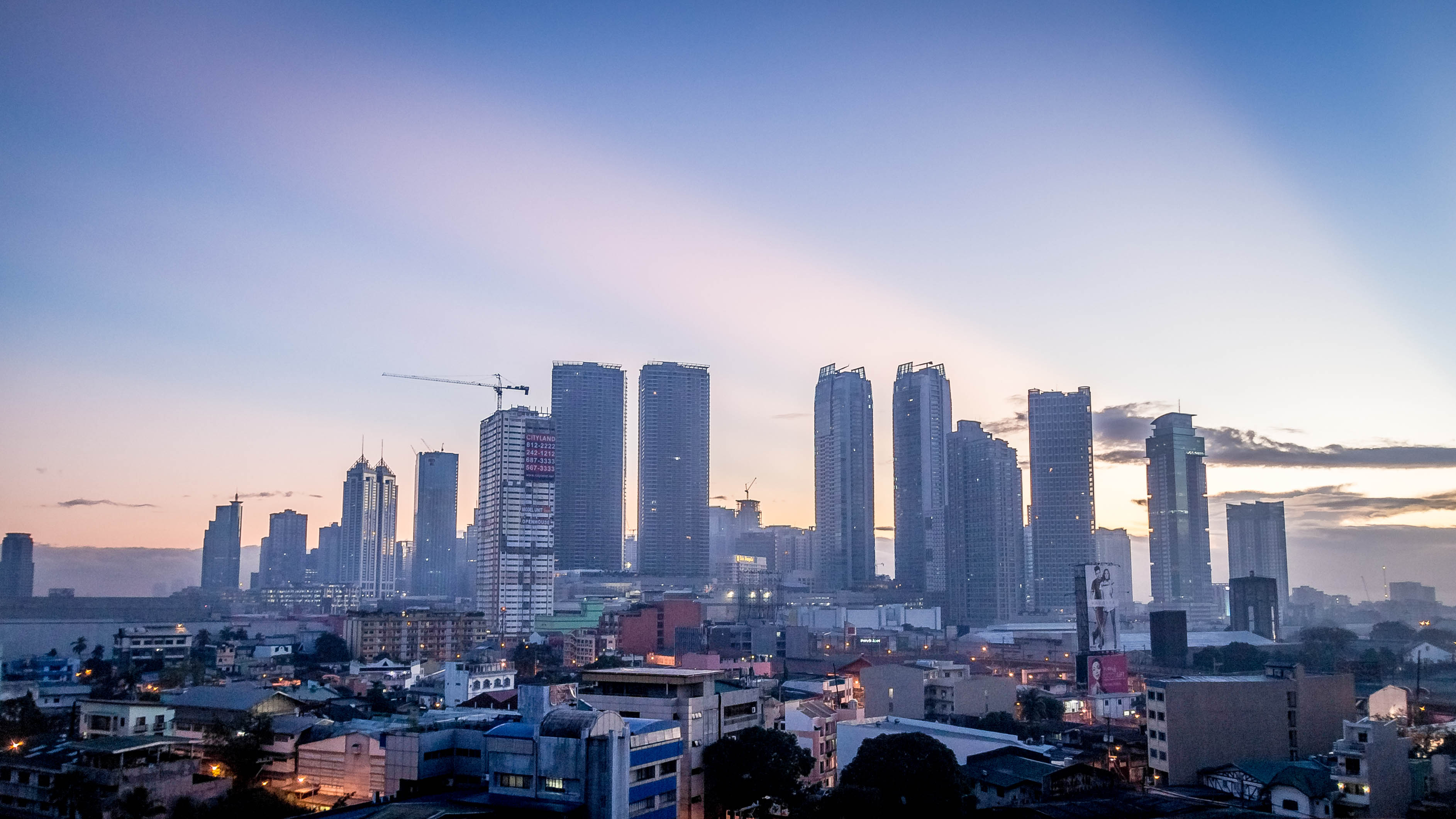
It amazes me how Christmas celebrations – simply the annual commemoration of the birth of Jesus Christ – can come in so many different forms on the international stage. My first experience of “Pasko Sa Pilipinas” or Christmas in the Philippines opened my eyes to the varying degrees of cultural significance the celebration can take across different nations.
For many Filipinos, the Christmas season is one of the most important times of the year. This is due to approximately 80% of the countries population being Catholic. Christmas has become an integral pillar of the Christian faith of many Filipinos.
The Christmas countdown in the Philippines
Now, when I say Christmas is one of the most important times of the year in the Philippines, I mean it. Often I will find myself walking through a mall and hear Christmas carols playing. This is followed by the realisation that it is only mid-September.
Enthusiasm for Christmas is what the Philippines is known for. It is often quoted as having the worlds most extended Christmas season. Carols can begin as early as September 1, the day Filipinos around the world mark the beginning of the countdown to Christmas. The festive season can then continue as far as the third Sunday of January, the day of the Feast of the Santo Niño.
The official observance of Christmas in The Philippines
The Catholic Church begin their Christmas formalities on December 16. This is the beginning of ‘Simbang Gabi’ or the ‘Misa de Gallo’; these are the early morning masses held on the lead up to Christmas. “Simbang Gabi” literally translates to “NIght Worship”, this is due to Filipinos waking up at four o’clock in the morning to attend mass.
Attending the nine masses leading up to Christmas is seen as quite an accomplishment. Often you will have breakfast together after the mass; often enjoying a warm ginger tea called ‘salabatand’ along with a flat but thick yellow rice cake called ‘bibingka’.
Many Filipinos attend the ‘Simbang Gabi” as a way to build anticipation for December 25ths celebration of the birth of the Christ. It is also a folk belief that if you attend all nine masses, any wish you have may become true.
After the reaching December 25, the Christmas season continues for the Catholic church up until the Feast of the Epiphany, occurring on the first Sunday of the year.

What to expect on Christmas Eve in the Philippines
Celebrating Christmas Eve in the Philippines is so much more than what I had experienced anywhere else. The city had come to life with families out in the city heading to restaurants for their Christmas feasts. Every restaurant I passed by was filled to capacity with long lines of guests waiting for tables.
This hints at the importance of Christmas Eve for Filipinos. Christians will first go to church to attend the final ‘Simbang Gabi’ or the Christmas Eve mass. This is immediately followed by what I was witnessing on the streets of Manila on Christmas Eve – Noche Buena or the midnight feast.
Noche Buena is a grand family dinner and comprised of delicious traditional Filipino food such as lechon, pancit, ham, queso de bola, fruit salad, rice cakes (bibingka and puto bumbong) and a lot more.
When Christmas day arrives
On Christmas day Filipinos will meet together with their relatives. Children will often dress neatly in their best clothes when they go to see their extended family.
When Children meet with older relatives, they ensure they practice ‘mano’ or to bless, which is a show of respect for their elders. When greeting the elder, the children will take the hand of the elder and gently press it to their forehead.
The children then receive gifts of money and toys from their relatives or godparents as a reward.
During this time it is not uncommon to be visited by carolers. Groups visit houses with tambourines and guitars singing Christmas carols to the householder.
Often carolers will use unique handmade instruments such as tambourines made from bottle tops, or drums made from milk cans.
After singing their songs, the householder will often reward the carolers with handfull of coins; this is then followed by the carolers singing words of thanks to the householder.
Schools and business embrace the spirit of Christmas in the Philippines
During Christmas parties schools and offices often enjoy their adaption of Secret Santa called “Monito Monita”. It is the same concept of Secret Santa in which all the participants will receive their anonymous gift. The gift is often purchased according to certain conditions and cost restrictions laid out at the beginning of the event.
These social events hosted by schools and businesses are often held a week before the Christmas holidays. This is usually around the time many private and public companies and agencies issue their bonuses along with other gifts to their employees.
So, although the Philippines doesn’t fit the traditional wintry setting of Christmas, we can see that the tradition is still alive and well in the country.





Be the first to comment